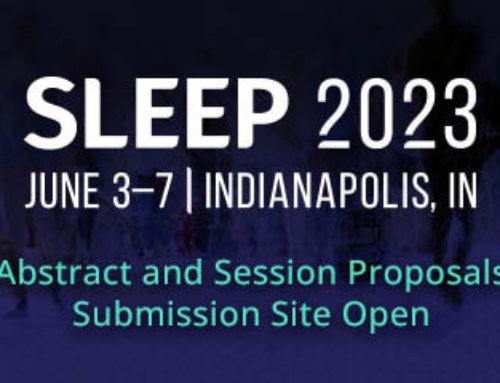CONTACT: Executive Director Jerome Barrett – (708) 492-0930 – jbarrett@aasm.org; Director of Communications Kathleen McCann – (708) 492-0930 ext. 9316 – kmccann@aasm.org
WESTCHESTER, Ill. – The American Academy of Sleep Medicine (AASM) commends the Institute of Medicine of the National Academies (IOM) for its independent analysis of current duty-hour regulations for medical residents. The AASM will conduct a thorough review of the recommendations made in today’s IOM report, “Resident Duty Hours: Enhancing Sleep, Supervision, and Safety.”
“As the leader in setting standards and promoting excellence in sleep medicine health care, education and research, the American Academy of Sleep Medicine recognizes that sleep deprivation and fatigue is a prevalent threat to physician performance and patient safety,” said AASM President Mary Susan Esther, M.D. “Balancing medical residents’ practical need for comprehensive training and experience with their biological need for adequate sleep is essential for the provision of quality patient care.”
The IOM report, which was sponsored by the U.S. Agency for Healthcare Research and Quality, is a follow-up to the 2003 duty-hour regulations that were established by the Accreditation Council for Graduate Medical Education (ACGME) for ACGME-accredited residency programs in all 120 ACGME-accredited specialties and subspecialties. The
ACGME regulations for medical resident duty hours, which took effect on July 1, 2003, set a weekly limit of 80 hours, averaged over four weeks, and established other provisions to promote adequate rest for residents.
“Great strides have been made in recent years to ensure that medical residents have the opportunity to get sufficient sleep during their years of education and training,” said Esther. “The AASM will continue to offer evidence-based advice to the ACGME and other allied health-care organizations, and will actively support any revisions to the existing duty-hour regulations that promote patient safety while maintaining the integrity of the physician-training system.”
To help educate medical residents about the dangers associated with fatigue, the AASM developed “
SAFER” (Sleep, Alertness and Fatigue Education in Residency), a resource that can be presented in a classroom setting or used for individual study. SAFER was updated and revised in 2006 to provide residents with the most current, scientific information on topics such as “Alertness Management Strategies” and “Practical Solutions for Coping with Residency.”
The AASM also is continuing to work to ensure that instruction related to sleep, sleep disorders and sleep medicine is provided to students at every medical school in the United States.
The AASM is a professional membership organization dedicated to the advancement of sleep medicine and sleep-related research. As the national accrediting body for sleep disorders centers and laboratories for sleep related breathing disorders, the AASM promotes the highest standards of patient care. The organization serves its members and advances the field of sleep health care by setting the clinical standards for the field of sleep medicine; advocating for the recognition, diagnosis and treatment of sleep disorders; educating professionals dedicated to providing optimal sleep health care; and fostering the development and application of scientific knowledge.
Links








